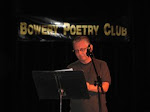Newly ripped tracks from Algerian, Burmese, Cambodian, Cuban, Ecuadoran, Egyptian, Lebanese, Moroccan, Puerto Rican, Sudanese, Syrian, Turkish, and Yemeni tapes
Newly ripped tracks from Algerian, Burmese, Cambodian, Cuban, Ecuadoran, Egyptian, Lebanese, Moroccan, Puerto Rican, Sudanese, Syrian, Turkish, and Yemeni tapes
I posted an earlier MP3 rip of this cassette on New Year's Eve 2017, and it has since become the most popular recording I've ever shared.
Its popularity had everything to do with its uniqueness - it's the only Khmer solo vocal recording without accompaniment I know of.
(Ironically, one of the first comments I received after posting it to Soundcloud was from a beatmaker asking permission to use it in his work.)
Sayonara Sound Productions was established in West Warwick, RI, in 1987 by Chang Leanghak Song. I have found maybe a dozen Sayonara cassettes and CDs in Cambodian immigrant-run grocery stores in the Bronx, Portland (OR), and Seattle.
Sayonara is one of a handful of late 20th Century Cambodian diaspora-run production companies that trafficked in bootlegged compilations of sixties and seventies tracks and post-Khmer Rouge Cambodian-language popular and traditional music recordings. I'm convinced that the most ubiquitous of these, the late Thoeung Son's Chlangden Production, provided the source recordings for Paul Wheeler / Parallel World's 1995 Cambodian Rocks, one of the most important - if ethically questionable - so-called "world music" compilations ever released.
Say what you want about bootlegging, but people like Thoeung Son changed our perception of the world in ways that they may never have realized. It makes this 2009 report about the Cambodian Ministry of Culture streamrolling 80,000 pirated domestic CDs and DVDs an occasion for mourning, rather than celebration.
The 1999 Sayonara Sound Productions cassette featured in today's post probably isn't a pirated version; in all likelihood, the singer was a Cambodian refugee living in Rhode Island, or nearby Massachusetts. This woman is most likely still alive, maybe 200 miles from where I write this, unaware of how many listeners she still has (nearly 8,000 via the Soundcloud post alone).
If you had downloaded the previous rip of this cassette, it's worth tossing it in favor of this one, which was played at the correct speed and duplicated at a much higher resolution.
Original post text
It was cold today. Not New York cold. Minneapolis cold. It's 11 degrees as I type this, warmed by a hissing radiator and the voice - the virtually naked, unmanipulated voice - of what we must assume to be the woman pictured on the cover of this cassette found several hours earlier at Battambang Market II in the Bronx.
It's a remarkable recording. Six of its eight tracks consist of nothing but this woman singing, sans accompaniment of any kind. The other two tracks - each side's last - are traditional Khmer instrumentals.
There aren't any albums I can think of that feature just a solo voice, unmediated (save, in this instance, for bit of reverb or room echo). I can think of a couple that feature one person's voice multitracked a number of times over itself (e.g., Japanese beatboxer Dokaka's Human Interface).
I love overlay, generally; but this cassette is something entirely different. There's a bit of reverb. Otherwise, it's just this voice. Singing, lamenting, pleading. Breathing. You can hear her breathe in between every. Single. Phrase.
It's otherworldly. I picked up a number of other things at Battambang today, but this was just so uniquely beautiful, I had to share it with you before anything else.
Happy New Year.
Link to recording in comments.
NOW PLAYING, 7-10 PM EDT, Bodega Pop on WFMU's Give the Drummer Radio spins three hours of tracks never before played on WFMU, all ripped from Indian CDs found in Brooklyn, the Bronx, Chicago, Iselin, Jackson Heights, Jersey City, and Manhattan
7-10 PM EDT TONIGHT on WFMU's Give the Drummer Radio: Three hours of punk, DIY, new wave, post-punk, and synthpop from the German-speaking world
